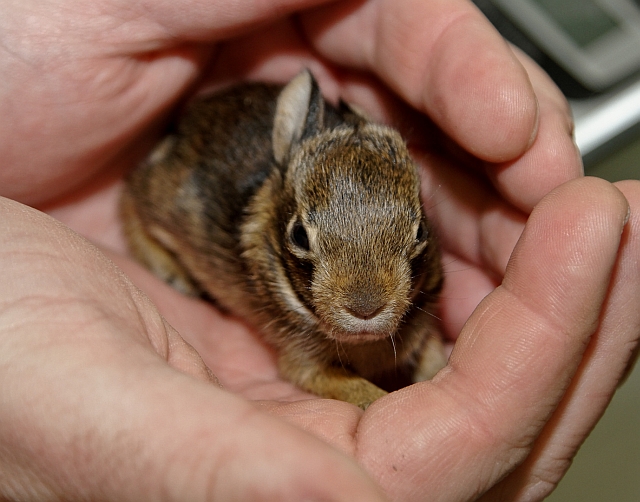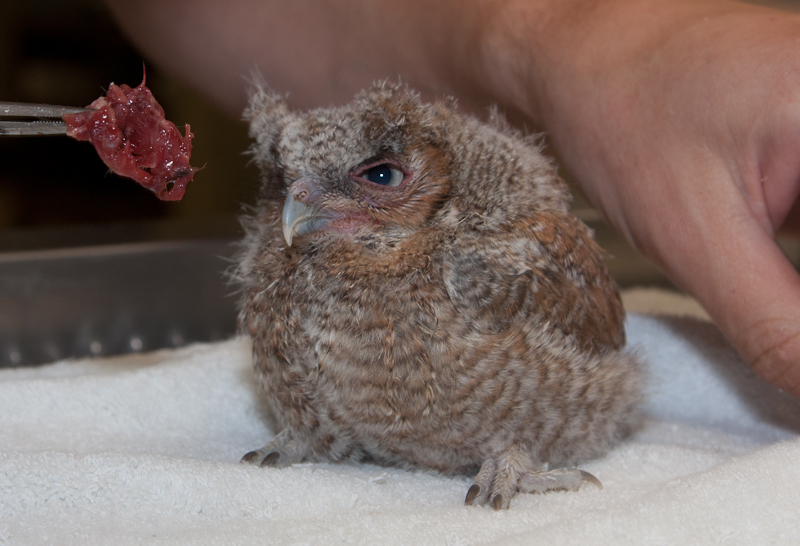“Baby animals fall out of trees all the time. But that doesn’t necessarily mean they need rescuing.” — Wildlife rehabber and clinic director, Rick Schubert
Spring is our wildlife clinic’s busy season, as the wildlife baby boom hits, and people bring in baby birds that have fallen from nests or bunnies seemingly abandoned in their backyard. Out of the over 12,000 phone calls the clinic handles in a year, hundreds involve questions or concerns about baby animals being orphaned. That’s more spring babies than our clinic– or most similar clinics, I’d imagine– can treat onsite. The good news is, many of these “orphans” really don’t need human help.
“The rehab and medical work we do here in the clinic may get all the attention,” says clinic director Rick Schubert, “but most of our work is done on the phone.” When taking a call, it’s important to ask the right questions: exactly where was the animal found, how long has it been there, has it been handled or fed, what’s its physical condition, etc. With this information, the clinic can determine whether or not the animal really does need clinic care and, if necessary, walk the caller through safe handling and transport.
The phone calls are also a critical opportunity for education and outreach. According to Schubert, “it’s much easier to prevent a problem than to correct the situation later, in the clinic.”
Many baby animals that you might think are orphaned, for instance, really aren’t, and would be better off left alone. But what if you’ve already picked it up, perhaps to check for injuries, or just out of an instinctive desire to care for it? Simply put it back where you found it and let the mother do her job.
“The idea that, once you’ve touched a wild baby animal the mother will reject it,is a myth,” declares Rick. “No wild animal will reject healthy offspring just because a human has touched it.”
(The key word there is “healthy.” Some animals will reject sick offspring, and even kick them out of the nest.)
Schubert considers the triage and education aspects of these phone calls so important that he rarely lets clinic volunteers answer the phone. That’s a job he reserves for himself and assistant rehabber Michele Wellard. He estimates that he spends an average of four hours a day on the phone. And while it may not be glamorous, that’s okay with him, because he can accomplish more good in less time.
So next time you find an “orphaned” squirrel, rabbit or bird in your yard—or any wildlife in distress— don’t hesitate to pick up the phone and call your local wildlife clinic for advice before you act. That’s what they’re there for.



the babies are adorable. me and my friend CC love these pics. we want to pick them up and huggggggggggggg them foreverrrrrrrrrrrrrrrrrrrrrrrrrrrrrrrrrrrrrrrrrrrrr